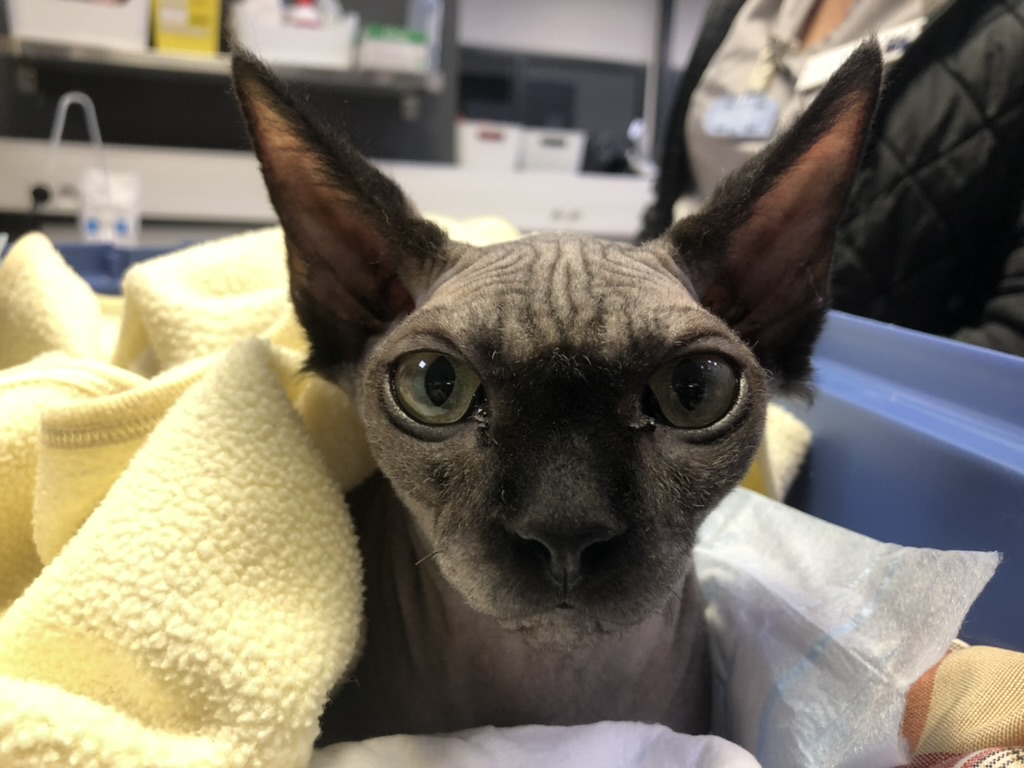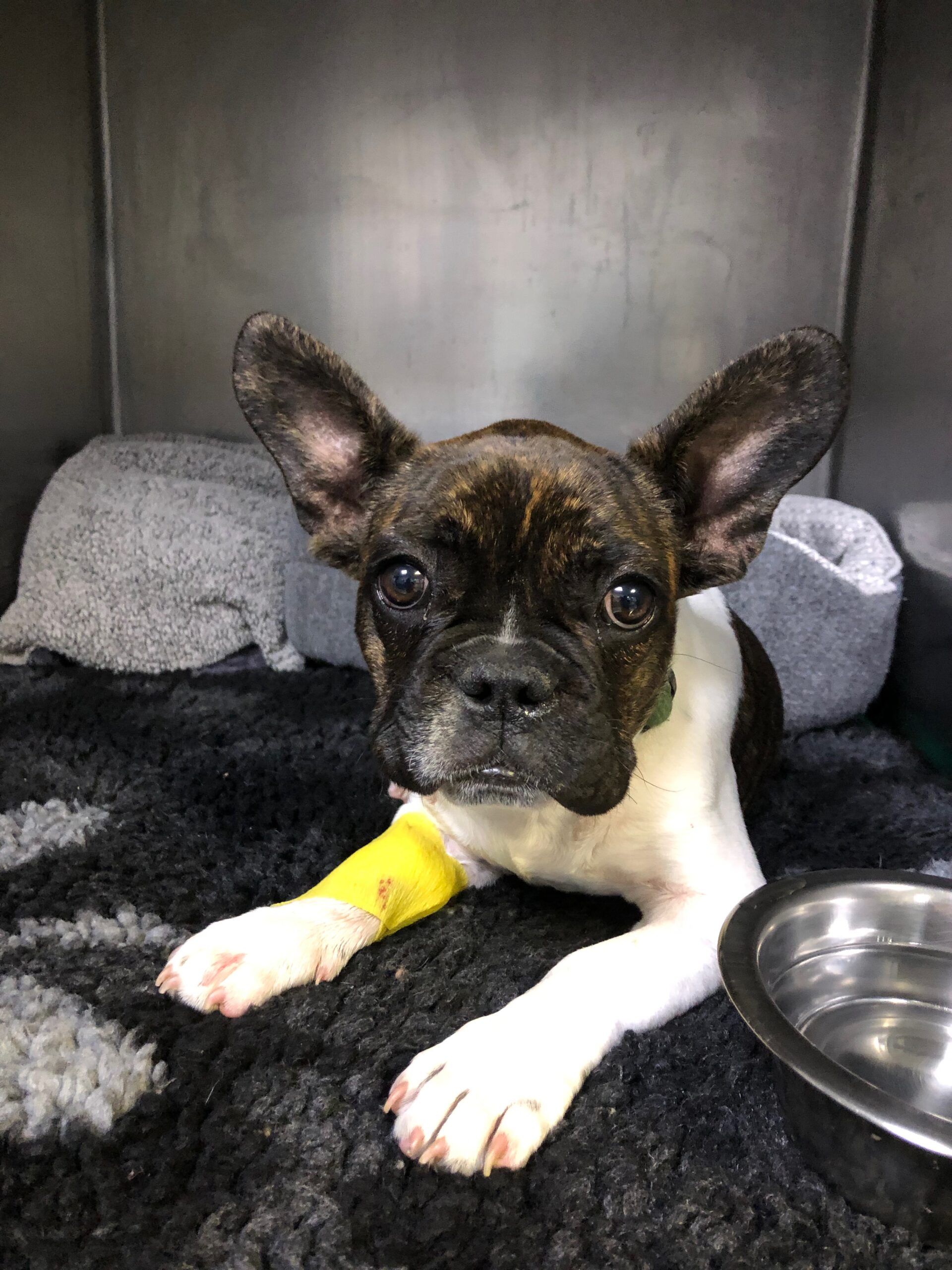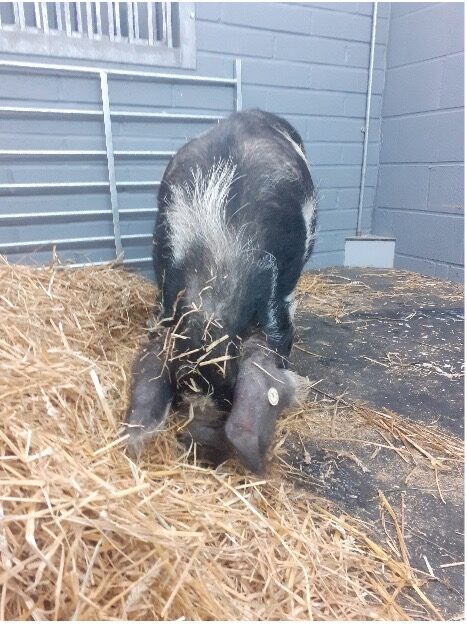Toscane, the Sphynx cat who underwent a faecal transplantation
Toscane, a 9mth old female neutered Sphynx cat
Before visiting the Specialist.
Animal Treated
Horse
Animal Condition
Urinary stones
Specialists Required
Equine Internal Medicine, Equine Surgery
Wodka’s 5 year journey to health began with a painful kidney stone.
Before visiting the specialists
One night, Wodka became very distressed because he was unable to pass urine. His vet removed a stone blocking his urethra and referred him to Rossdales Equine Hospital for further investigation.
Wodka’s care
At Rossdales Equine Hospital and Diagnostic Centre, an endoscope was inserted into Wodka’s bladder and his kidneys were examined with ultrasound which showed that the left kidney was severely diseased and this was causing small stones to form in the kidney and these were moving into the bladder causing intermittent blockages and discomfort. A special diet was recommended and over the next 4 years, Wodka was monitored carefully with blood tests and ultrasound.
For most of this time, Wodka felt fine but eventually, the problem in the left kidney began to cause him to be very uncomfortable when exercising. His owner and vets decided that, although this is a major operation, removing the left kidney would be the only way to help Wodka back to full health.
Wodka’s progress
Wodka had to stay in hospital for several weeks – he lost almost 20% of his body weight. But eventually, Wodka was able to leave the hospital and now, he is back doing what he loves, show jumping.
Article provided by
Celia Marr, Specialist in Equine Internal Medicine
Lewis Smith, Specialist in Equine Surgery


